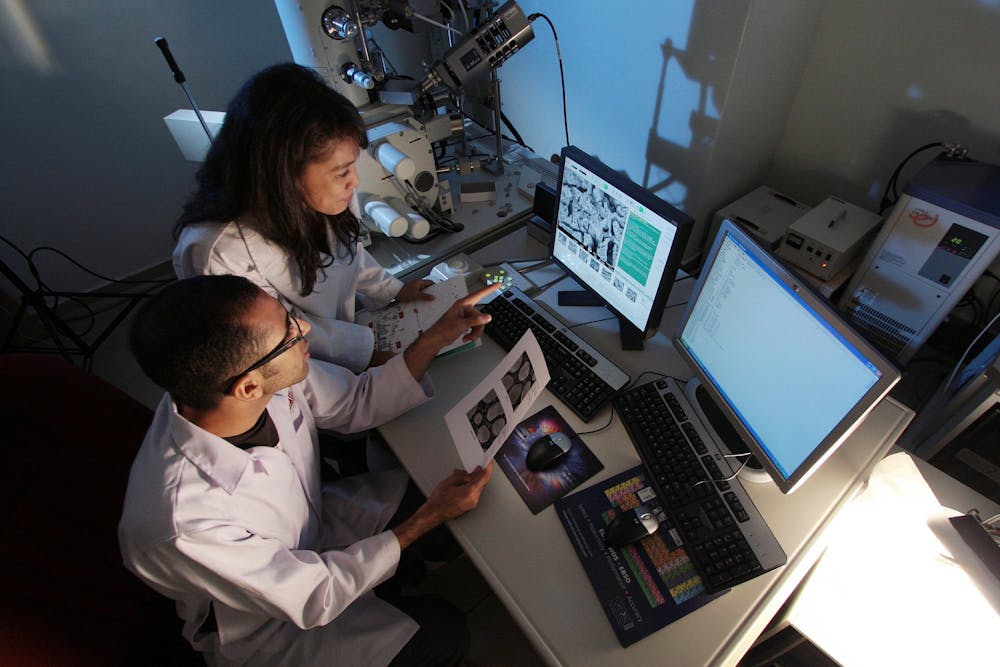“Where were the genetics PhD students? Or the molecular biology PhD students? And the clinical residents and fellows? They all should have been there.”
I had just sat down at our student-faculty dinner. Despite the allure of delicious free food, I could already tell that I would have been better off had I stayed at home. This visiting scientist’s lecture had been sparsely attended, the source of his obvious dissatisfaction. Though he emphasized his world renown, I suspected that the other graduate students and medical trainees were not as familiar with his work as he assumed — not that I was going to be the one to share that with him. Academia’s protocol requires that we stroke the egos of even our most cantankerous superiors.
He continued.
“It really is a shame. The state of graduate education in general, I mean. Students have too many rights these days,” he said. “That’s why I prefer to hire postdocs from South Korea. They have the work ethic and don’t expect so much coddling. What are they teaching you here anyway? Have you even read any of the classic works? Pasteur? Mendel?”
We had not.
Something within him seemed to snap as he cradled his head in his hands. He was clearly appalled by our “substandard” education. I snuck a wary glance at my labmate sitting next to me. Not another one of THESE academics.
The rest of our dinner consisted of an aggressive barrage of insults towards us, our field of study, our education and our career plans. It was, without a doubt, the most stressful meal of my lifetime.
We now laughingly recall this dinner every time we see another publication of his pop up in Science or Cell. “What a jerk,” we remember. “I hope his poor postdocs are okay after all that work.”
Of course, irritable workaholics exist in all career paths, but academia puts them on a pedestal. As much as I would love to call that negative experience an outlier, it’s not. I can confidently say that any student or academic knows who the perpetrators are at their own institutions. The fact of the matter is, unfortunately, my five years of graduate study have been riddled with personal encounters with famous, admired, cutthroat, pompous and boorish — a.k.a. toxic — academics.
In a similar student-faculty dinner with a visiting Harvard professor, I was advised to finish my doctoral studies as quickly as possible because my “biological clock is ticking away and graduate studies aren’t conducive to pregnancy.” I went to a female faculty advisor afterward to ask for tips on handling these types of situations.
“Don’t be so quick to assume someone’s comments are sexist,” she advised. “There are biological limits to pregnancy.”
I walked away feeling empty. Somehow, it didn’t matter that at no point in my conversation with that Harvard professor did I mention a desire to start a family. In his eyes, as a female, I was a walking womb — a potential liability to lab productivity.
On another occasion, a visiting scientist gave a talk on “Tips for Success in Graduate School,” which we were strongly encouraged to attend. He showed us a graph that compared hours worked in lab to “success” measured as publications produced. The takeaway: Productivity increases with hours worked in lab up until 120 hours per week, after which point productivity decreases due to mental health dilemmas. He laughed that part off. “You’re in your 20s. It’s not like you guys have anything better to be doing anyway.”
Meanwhile, our inboxes are full of emails from student mental health services cautioning us about the dangers of burnout and offering free yoga classes. Our deans and course directors are shocked and appalled by the results of the recent Graduate Student Association survey, indicating that nearly half of our student population has witnessed learner mistreatment. They encourage us to report such incidents and try to assure us that our careers won’t be completely derailed if we need to change labs due to a toxic work environment. In our mandatory Research Ethics Course, we were instructed, “You must not be complicit in mentorship malpractice. It’s your job to know when to walk away.”
These measured assurances underplay the gravity of the situation. Mentorship abuse is traumatic for the students who experience it. Beyond the toll on their mental health and well-being, switching labs due to mentor mistreatment inevitably prolongs their graduate studies — an unpalatable option for traumatized students. Compliance often seems like the only option. Many choose to leave academia altogether.
The problem of toxic academics is now widely acknowledged. Yet, I remain utterly perplexed as to how our brilliant faculty leaders have devised a solution that hinges on students bearing the onus of their own mistreatment. This strategy fails to address the unhealthy work environment perpetuated by toxic academics. Rather, it coddles their egos so they can continue to drive their students to produce the “top-notch” publications that make Hopkins so proud, while students who can’t “take the heat” are quietly shuffled around. Academia’s definition of success — the quantity and impact of publications — fuels this culture. This skewed value structure fails to recognize the broad positive contributions scholars make to the world outside the ivory tower.
Mentorship is one of the most important pillars of the scientific institution. Until our faculty, our leaders and our institutions refuse to tolerate their toxic peers and prioritize excellent mentorship that serves diverse student populations when recruiting faculty, these problems will not change. However, if we can dismantle the toxic culture of academia and create in its place an institution that celebrates that vast diversity of roles scientists play in society at and beyond the bench, science will be better poised to positively serve society.
Now, excuse me as I head to my free virtual yoga class.
Talia Henkle is a PhD candidate in Immunology at the School of Medicine. She is the president of the Johns Hopkins Science Policy Group and a co-editor for the Biomedical Odyssey Blog.





